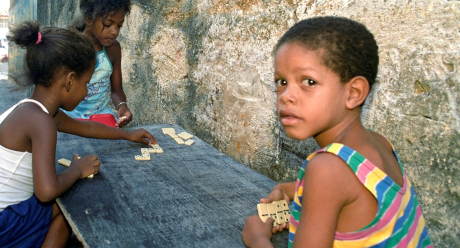Twenty-First Sunday after Pentecost
Proper 26
Year C
Jesus entered Jericho and was passing through it. A man was there named Zacchaeus; he was a chief tax collector and was rich. He was trying to see who Jesus was, but on account of the crowd he could not, because he was short in stature. So he ran ahead and climbed a sycamore tree to see him, because he was going to pass that way. When Jesus came to the place, he looked up and said to him, “Zacchaeus, hurry and come down; for I must stay at your house today.” So he hurried down and was happy to welcome him. All who saw it began to grumble and said, “He has gone to be the guest of one who is a sinner.” Zacchaeus stood there and said to the Lord, “Look, half of my possessions, Lord, I will give to the poor; and if I have defrauded anyone of anything, I will pay back four times as much.” Then Jesus said to him, “Today salvation has come to this house, because he too is a son of Abraham. For the Son of Man came to seek out and to save the lost.”
The children like this story because they identify with Zacchaeus. At first glance, it is hard to see the connection. The man in the story was wealthy and corrupt.
Our children are homeless. They sleep under a bridge. They have no possessions. But despite all these differences, they see something in Zacchaeus that reminds them of themselves.
Many of us may not want to identify ourselves with Zacchaeus. We prefer to think we are better than he is. For most of us, this story is an example of the power of God’s grace. We liken Zacchaeus to a drug dealer, a politician standing for presidential election, or someone we would prefer to relegate to the cesspool of objectionable personalities. However, in Zacchaeus our street children see a complex human being not unlike themselves.
We know how this story ends; even our children are familiar with it. But we tend to focus on its ending and ignore some interesting details. The author of the Gospel knew it was important that we know about Zacchaeus’ physical stature. His shortness wasn’t a physical ailment or other impairment that warranted special attention, but because of his height, Zacchaeus could not participate in the day’s main event: the arrival of Jesus in Jericho. Although as a tax collector he possessed wealth and power, neither of these made him privy to one of the city’s most important happenings. He was an outsider and had most likely always been one. No one cared that he couldn’t see Jesus. In fact, no one cared whether or not he existed.
This was probably the story of Zacchaeus’ life. He was alone and had to make his way in this world, but he chose the wrong way to do it. He was ruthless and unkind. He stole from people and then flaunted his wealth. People noticed him by despising him. And apparently, he didn’t mind—as long as they were forced to acknowledge his existence.
The more we get to know our children, the more easily we can see their connection with Zacchaeus. What brings them to the streets is not poverty. Yes, it does contribute, but it is not the main reason. Our children don’t mind being poor; they can adapt to it. But they do mind being neglected and ignored. They don’t demand too much attention, but they want to know that their existence is important to someone. Most of them have suffered a trauma that caused them to flee to the streets. But not even the tragic circumstance itself brought them here. Instead, what brought them was the unfortunate fact that no one cared enough to notice or help them through their traumatic experience.
Our children take refuge in the streets, hoping someone will notice them. Those who engage in criminal activities don’t do so for survival. They can have food and clothing without stealing. They can even buy drugs with the money they get from begging. But people notice their existence only when they steal. People think of the homeless children only when they do something negative. Most of the time, they are invisible because they occupy such a small space in society, just the like the man of small stature in the Gospel story.
Zacchaeus was hidden from the crowd, but Jesus noticed him anyway. For him, this was a dream come true: he was acknowledged without having to do anything. Jesus knew him by name and broke bread in his household. But the people despised the fact that Jesus wasted time and energy on this person. They liked to crowd around Jesus and often spoke of him, but most never understood what he came to do.
Jesus came to look for those whom society wants to forget. In this story, it was a wealthy man; in others, it was a forgotten widow or a homeless beggar. The people Jesus seeks come from different social backgrounds but share a common trait: they all occupy a small place in people’s hearts and minds—so small that it is easy to forget they exist. Most of the time, society doesn’t think people like this deserve God’s grace. Yet strangely, he chooses them to help us understand the meaning and immensity of his grace. However, if we choose to remain in our hatred and apathy, we will never see or appreciate it.
One remarkable change in our relationship with the children over time is that they started to offer us small gifts, usually some simple snacks. They have done this before out of courtesy, but now there is a subtle difference. They offer us things they buy with their own money, even insisting we take them when we politely refuse.
They want us to have something of theirs. They don’t want our relationship to be one-sided but mutual. They want to be generous with us, a sign of genuine spiritual transformation. You see, generosity always begets generosity.
There are Zacchaeuses all around us. Some are rich and powerful, and some are poor and isolated. They are just like us, trying to find a reason to justify our existence. The only difference, perhaps, is that they are more aware of their anonymity than we are.
God chose Zacchaeus to show that even though we may be despised and hated by the world, we are not disqualified from his grace. The children understand this valuable lesson. They are glad Jesus chose to dine at Zacchaeus’ home. It gives them hope. And it gives us hope as well.
The Rev. Stephen and and his wife Mary Doss are missionaries sent by the Episcopal Diocese of Central Florida where Fr. Stephen served as an ordained clergy. Fr. Stephen is originally from Singapore and served with Youth With A Mission in São Paulo.
For more insights and stories from the streets of São Paulo, visit www.spmercyministry.com. Today’s Lectionary Living devotion from Luke 19:1-10 was edited from Fr. Stephen’s October 2016 blog post found at the same link.


